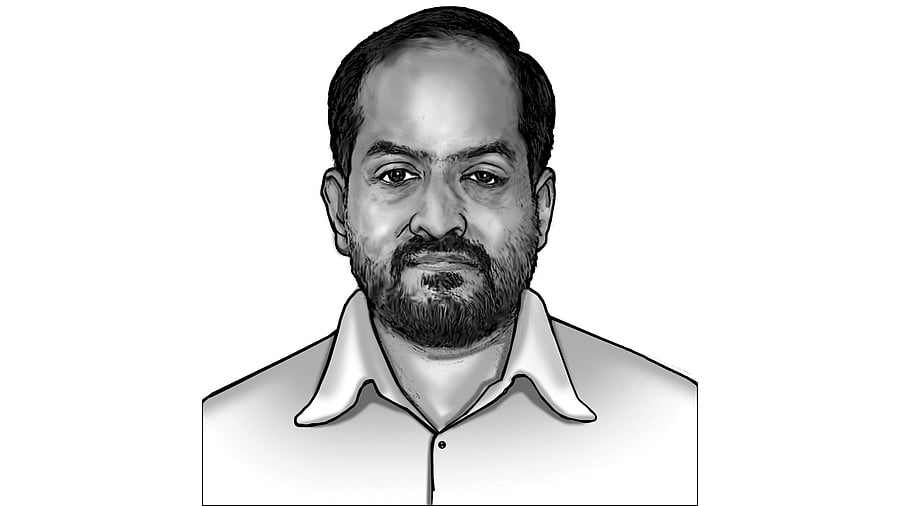
Venkatesh Nayak wakes up every morning thinking someone somewhere is hiding something
Credit: DH Illustration
This column is being published between two landmark dates occurring a fortnight apart, namely, the UN-declared International Day for Universal Access to Information (IDUAI) and the anniversary of the enforcement of India’s RTI Act. An international study report released on that day (September 28) ranks the Asia-Pacific region second after Central and Eastern Europe for providing some information in response to common test RTI applications filed across more than 120 countries. The findings place the African region at the bottom of the pile. Apparently, in some countries of the Arab region, it was not possible to even submit the test RTIs. Clearly, despite 140 countries adopting RTI laws, the people’s right to know is not uniformly respected, let alone fulfilled across the globe.
India was included in this comparative study. While the Union Health Ministry disclosed the total expenditure incurred on buying COVID vaccines (as revealed in Parliament in 2023), the Environment, Forests, and Climate Change Ministry transferred the test RTI to the Central Pollution Control Board (CPCB). CPCB replied that it had not received any funds to be used for remediation measures, as no major environmental incidents had occurred between 2021-23. So, the test results are positive here!
Our own RTI Act will complete two decades of implementation next week. Assessment reports may be released, some of which might show how poorly this law has been faring in recent years. Review articles may be written, some either declaring its demise or prophesying such a fate in the foreseeable future. While acknowledging the many setbacks that the regime of transparency has faced since 2005, a few positive stories from recent months deserve to be highlighted to show that the glass is not only half empty but also half full.
Readers may recall reading my angst-ridden outpourings in these columns about the abysmal track record of the Election Commission of India (ECI) vis-à-vis its transparency obligations under, not only the RTI Act, but also the very election laws and rules it is mandated to implement. For example, in the middle of last year’s Lok Sabha elections, ECI claimed that it did not have a compiled list of Returning Officers (ROs) who conducted those elections. Later on, ECI treated like sarkari secrets, other election-related records – be it the list of expenditure-sensitive constituencies, vulnerability mapping reports, suspicious transaction reports received from banks during the operation of the Model Code of Conduct, election observers’ reports, ROs’ scrutiny reports submitted after the end of polling, or even absolute voter turnout figures recorded in Form 17-C, at every polling station.
However, my recent experience with some of the states has been refreshingly positive. Contrary to the common practice of public authorities rejecting requests for voluminous information, the office of the Chief Electoral Officer (CEO), Maharashtra, counted about 2,500 pages of last year’s election-related records, charged additional fees and postage, and delivered crystal-clear photocopies after receiving payment. When an appeal was filed about a handful of missing pages (to be expected when bulk photocopying is involved), the Deputy CEO scheduled a telephonic hearing within a few days and supplied them free of charge, soon after.
A similar request was filed simultaneously with the CEOs of Haryana and Jammu and Kashmir (J&K). Haryana sent thousands of pages of scanned records, by email, entirely free of charge, within a month. The request posted to the Srinagar office of J&K’s CEO did not receive a response for a couple of weeks. So, another request was despatched to their Jammu office. Within a few days, more than a thousand pages of scanned records were delivered by email, believe it or not, free of charge. Later, as this CEO’s website had not yet displayed the vote tally of candidates in Form-20 for the 2024 elections, another RTI application was submitted. That RTI was transferred to all the districts, and they are sending scanned copies, one by one via email – and yes, free of charge. Lest readers blame my ‘infamous’ reputation arising from these columns, let me tell you, these offices might not know me from Adam.
Where there is a will, there is a way. The ECI would do well to emulate these examples of good practice of the very authorities it supervises during elections. Adopting a pro-transparency approach can reduce the flak it receives for its performance and act as a confidence-building measure for the citizenry and the opposition parties. Will the triumvirate at Nirvachan Sadan pay heed?
The writer wakes up every morning thinking someone somewhere is hiding something.
Disclaimer: The views expressed above are the author's own. They do not necessarily reflect the views of DH.